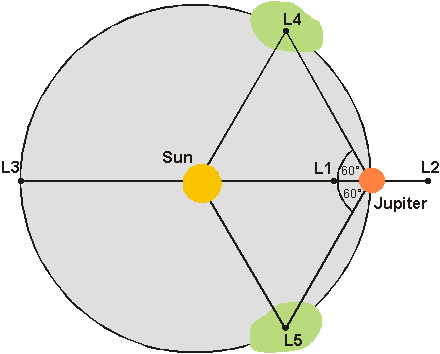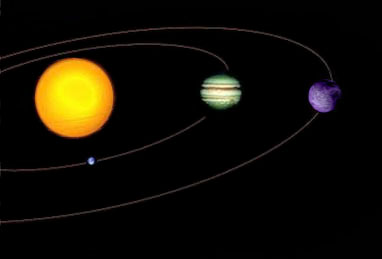Trojan Asteroids
The Italian-French mathematician Joseph Lagrange (1736-1812) showed that
the three-body problem could be solved for a few special cases analytically.
In 1772 he discovered five special points in the vicinity of
two orbiting masses where a third, much smaller mass can orbit at a fixed
distance from the larger masses (Lagrange 1788).
More precisely, the Lagrange points mark positions where
the gravitational pull of the two large masses equals the centripetal force
required to rotate with them. The Lagrangian points are the five stationary
solutions of the restricted three-body problem (=RTBP)- in this idealized
problem a massless body moves under the gravitational influence of two massive bodies,
which themselves are on circular orbits - , as it is demonstrated in the figure
below.
 Next Page
Next Page
|
















